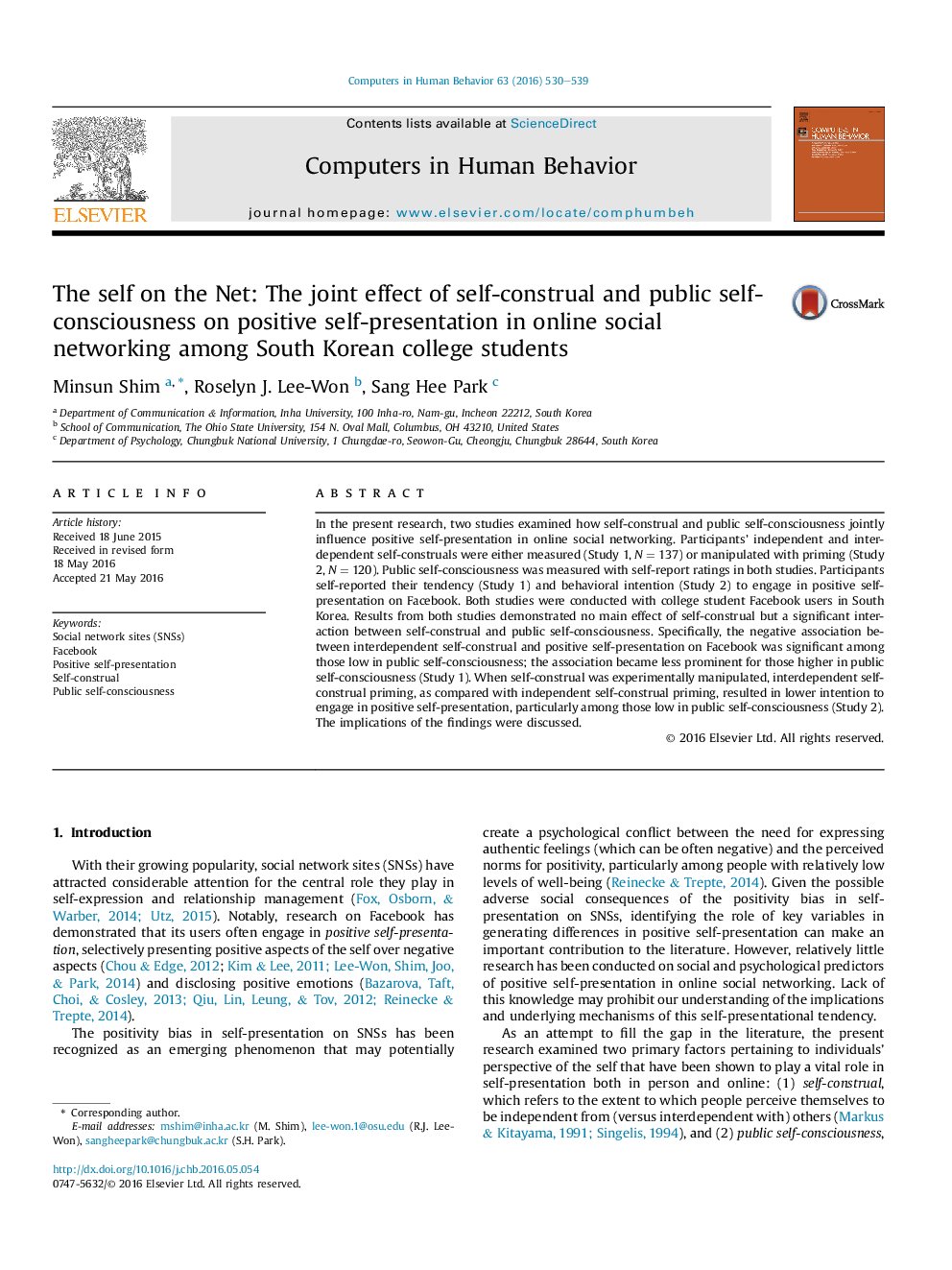| Article ID | Journal | Published Year | Pages | File Type |
|---|---|---|---|---|
| 6836748 | Computers in Human Behavior | 2016 | 10 Pages |
Abstract
In the present research, two studies examined how self-construal and public self-consciousness jointly influence positive self-presentation in online social networking. Participants' independent and interdependent self-construals were either measured (Study 1, NÂ =Â 137) or manipulated with priming (Study 2, NÂ =Â 120). Public self-consciousness was measured with self-report ratings in both studies. Participants self-reported their tendency (Study 1) and behavioral intention (Study 2) to engage in positive self-presentation on Facebook. Both studies were conducted with college student Facebook users in South Korea. Results from both studies demonstrated no main effect of self-construal but a significant interaction between self-construal and public self-consciousness. Specifically, the negative association between interdependent self-construal and positive self-presentation on Facebook was significant among those low in public self-consciousness; the association became less prominent for those higher in public self-consciousness (Study 1). When self-construal was experimentally manipulated, interdependent self-construal priming, as compared with independent self-construal priming, resulted in lower intention to engage in positive self-presentation, particularly among those low in public self-consciousness (Study 2). The implications of the findings were discussed.
Related Topics
Physical Sciences and Engineering
Computer Science
Computer Science Applications
Authors
Minsun Shim, Roselyn J. Lee-Won, Sang Hee Park,
